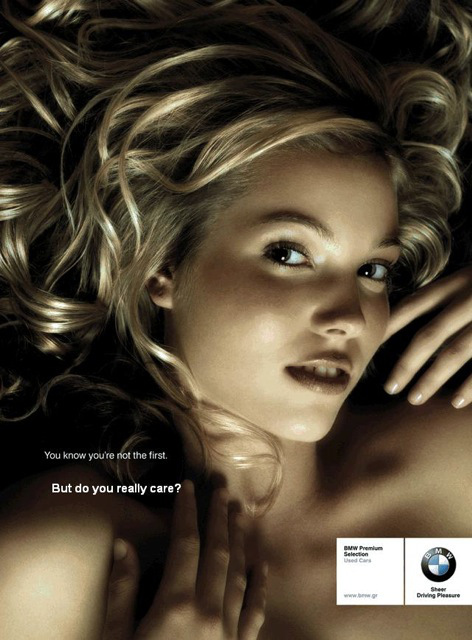When I first stumbled upon this image, I was fairly shocked at how the marketer managed to connect BMW used cars to women who were no longer “virgins”. What a “brilliant” campaign that targets perfectly the mindset of male customers of second-hand high-end vehicles. Admittedly, this poster was able to answer the question of “why buy a second-hand car that’s quite expensive?” flawlessly. AND it speaks directly to its biggest customer segment, seemingly doing an amazing job at attracting business. Indeed, for a car with such prestige and luxury-based performances, who cares if it’s a second-hand? Yet, the abuse of objectifying women has rendered this poster to the unethical end of marketing.
It’s not uncommon these days to see a promotion employing stereotypical images of women or use sex as an appeal to the product. Everyday on television, we see diligent and caring housewives running around their houses cleaning and cooking, conveying how efficient the laundry detergent is how it has changed their “lives”. This enhances the stereotype that women are meant to be stay-at-home moms, and whose life goals are to cater to their families. Furthermore, more demeaning stereotypes include those in which women are presented as less intelligent, unable to assume leadership roles or make decisions, submissive to or obsessed with men, or skimpily dressed in order to appeal to the sexual interests of males. What worries me is the fact that people are becoming accustomed and used to these set roles for women, and it rarely bothers or offends people when they see these marketing tactics.
Indeed, it is a challenge to balance marketing ethics while trying to remain competitive in the market, and it may be convenient to target women in their traditional roles in order to sell them the products. However, we must consider if it is ethical to bombard the population with these advertisements, and how we can avoid stereotyping and objectifying women in marketing.

